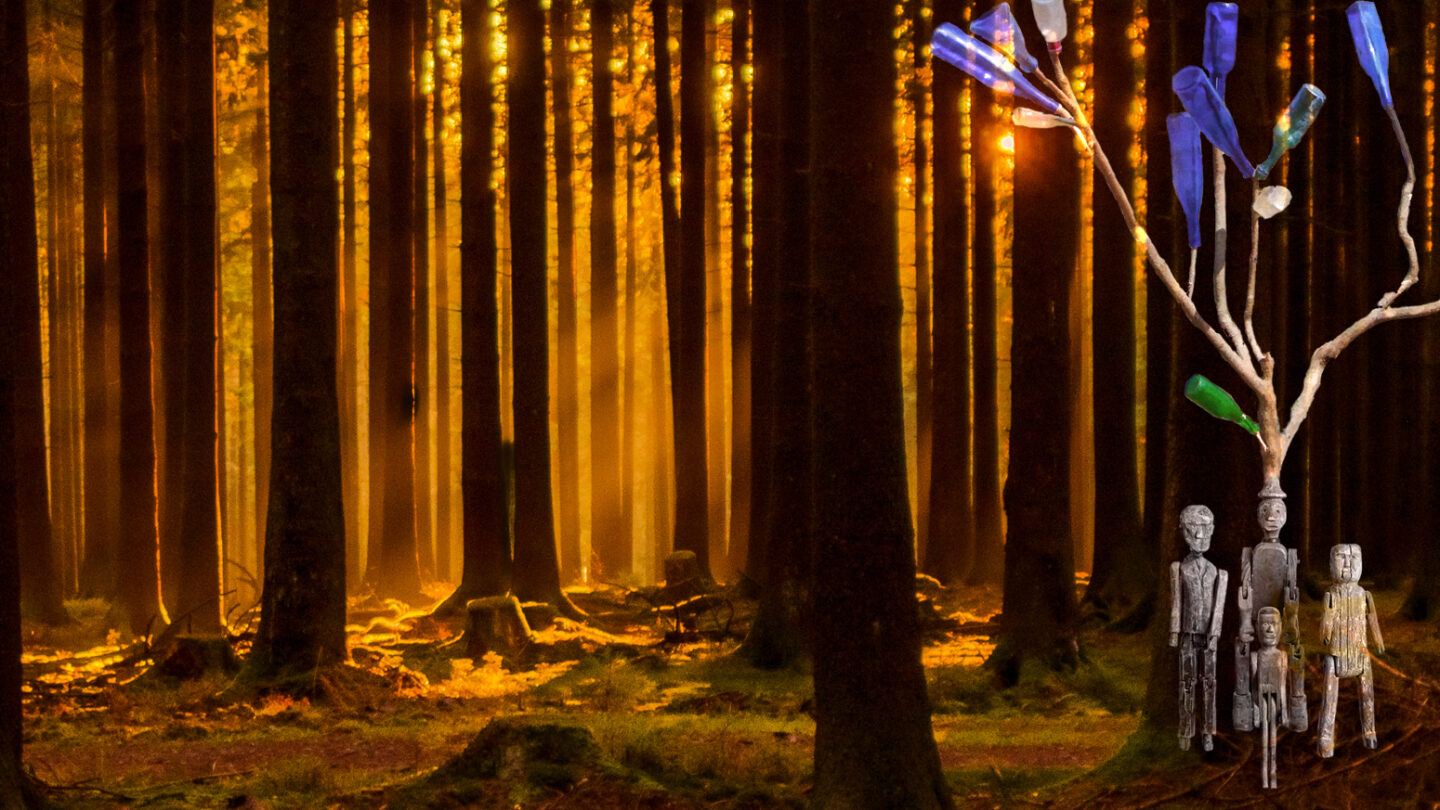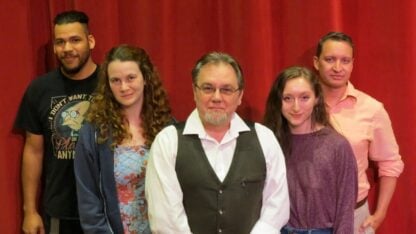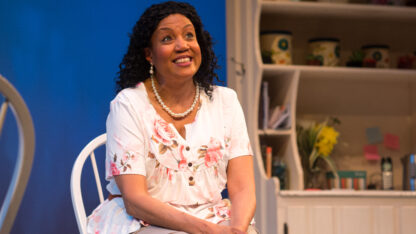'Cassie's Ballad' inspired by Atlanta's missing and murdered children cases

Found Stages has created a new immersive theater experience inspired by a tragic point in Atlanta’s history. “Cassie’s Ballad” takes place outdoors, walking through nature with the audience guided by actors into the beautiful West Atlanta Watershed. The moving tale that unfolds draws from the period of Atlanta’s missing and murdered children in the 1980s. “Cassie’s Ballad” will be performed May 7 – 22. Playwright Addae Moon and director Lydia Fort joined “City Lights” host Lois Reitzes via Zoom to talk more about their new immersive journey through this powerful tale.
Not simply a play, but a ritual:
“There is a very interesting rich tradition of, both in performance, but also in playwriting, of narratives that are shaped and formed as rituals, but with a very specific intent,” said Moon. “So while I wanted to highlight the story of the missing and murdered children, I also wanted to create a framework for people, especially people of color, who are constantly dealing with these sort of attacks on their psyches and on their bodies, create a sort of space where they could unpack these things and hopefully find some healing.”
Fort added, “Growing up with the idea of the African griot as a symbol of healer through storytelling, I found myself thinking about that role in this piece. So if the whole community comes together to hear a story about their history or their past, it’s also to teach and instruct and to provide a sense of strength and hope and all of those other wonderful things that we think about when we think of the purpose of how community supports its members.”
The symbolic search for Cassie’s lost voice:
“This piece began as an actual ‘play,’ in quotes before it became a ritual piece, and in the ‘play’ version of the experience, there were a lot more characters. But I was really intrigued by this idea that, even though there were two young girls who were a part of the missing and murdered children’s cases, there was so much focus placed on the young men who tragically lost their lives,” Moon explained. “I was just imagining what it might have felt like to be a young Black girl and to, in a way, be ignored when all this was happening.”
He continued, “The initial idea for her voicelessness was that she was refusing to speak because she felt left out and isolated. As the piece expanded and became something else, the voicelessness, or the inability to speak, I think now is really a reflection of the trauma and how trauma silences us in some ways. So the search for her finding her voice became the major dramatic impulse for the ritual.”
How the tragedy of Atlanta’s lost children still echoes:
“The tragedy of the missing and murdered children had a very strong impact on me. When I was a child, I had an aunt who lived in Atlanta, and we used to come up to visit every summer, and once those murders started, we stopped,” said Moon. “I often tell people it’s when I really became aware of race. I grew up in a working-class Black neighborhood, so everybody looked like me. But the idea that being young and being Black can make you vulnerable… was an idea that I was introduced to because of that tragic situation.”
“It’s taken almost 40 years for the city to even fully acknowledge it, and that in and of itself, I think, is an issue,” Moon said. “Hopefully, as a city and as a broader community, we’re reaching a point now where when harm happens to one of us, we realize the impact that it has on all of us. And maybe we’ll be quicker to address that harm and to provide healing.”
The Found Stages immersive experience “Cassie’s Ballad” will be performed May 7 – 22 at the West Atlanta Watershed Alliance. Tickets and more information are available at www.foundstages.org/cassies-ballad.








